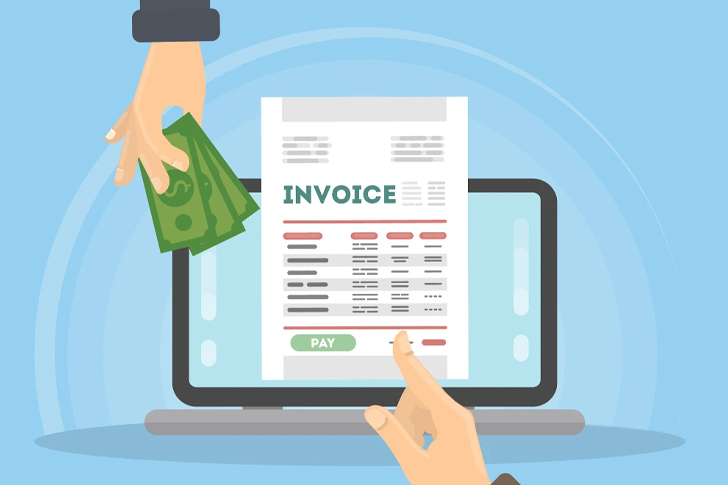In this guide, you'll discover essential tips and advice on choosing online invoicing software, understanding its features, and optimizing integration for your business.

Online invoicing software is a digital tool that simplifies the invoicing process, allowing businesses to create, send, and manage invoices via the internet. It streamlines operations, reduces errors, and ensures timely payments, making it a valuable asset for any company.
When selecting online invoicing software, look for these essential features to ensure it meets your business needs:
A good online invoicing software should have an intuitive and clean interface. This ensures that you and your team can easily navigate through the software, reducing training time and increasing productivity.
Customizability is crucial. Opt for software that allows you to personalize invoices with your company logo, colors, and specific fields. This not only reinforces your brand identity but also ensures that your invoices contain all necessary information.
Timely payments are vital for cash flow. Choose a solution that includes automated reminder features. These notifications encourage clients to pay on time and reduce the need for manual follow-ups.
Integrated payment processing is a must-have feature. It allows clients to pay directly through the invoice, using various payment methods such as credit cards, PayPal, or bank transfers, making the payment process convenient for both parties.
Comprehensive expense tracking within your invoicing software aids in better financial management. It helps you monitor costs, categorize expenses, and generate reports for more accurate accounting and budgeting.
If your business operates internationally, ensure the software supports multiple currencies and languages. This feature helps in avoiding conversion mistakes and caters to a global client base effectively.
For businesses that bill by the hour, integrated time tracking is essential. It enables you to record billable hours directly into invoices, ensuring accuracy and saving time.
Sophisticated reporting and analytics tools provide insights into your invoicing activities. Look for software that offers customizable reports, helping you track outstanding payments, manage cash flow, and make informed financial decisions.
Integration is a critical aspect that enhances the functionality of your online invoicing software. Proper integration with other business tools can lead to significant time savings and improved data accuracy. Here’s why integration matters:
Integrating your invoicing software with accounting tools like QuickBooks or Xero ensures seamless data transfer. This integration helps in maintaining up-to-date financial records, simplifying tax preparation, and reducing the manual entry workload.
Customer Relationship Management (CRM) integration helps keep client information consistent across platforms. This leads to better customer service and streamlined business processes. You can easily track client interactions, manage sales pipelines, and automate follow-ups.
For project-based businesses, linking your online invoicing software with project management tools like Asana or Trello can lead to seamless workflow management. It allows for better tracking of project budgets, timelines, and billable hours.
Integrating with multiple payment gateways like Stripe, PayPal, or Square gives your clients flexibility in payment options. This feature can expedite the payment process and improve the client experience.
If you run an online store, integrating with e-commerce platforms like Shopify or WooCommerce ensures that sales data is automatically updated in your invoicing software. It helps in accurate inventory tracking and financial reporting.
To make the very out of your invoicing software and its integrations, consider these tips:
Ensure that your invoicing software and integration tools are regularly updated. Updates often include new features, improved security measures, and fixes for any existing bugs.
Maintain data consistency by syncing information regularly across all integrated platforms. Consistent data ensures accurate reporting and minimizes errors.
Provide comprehensive training for your staff on how to use the integrated systems effectively. This reduces the learning curve and maximizes productivity.
Leverage automation features available in your software to reduce manual tasks. Automation can help with generating recurring invoices, sending reminders, and updating records, thereby saving time and minimizing human error.
Continuously monitor the performance of your integrated systems. Evaluate whether they are contributing positively to your business operations and adjust them as needed for optimal performance.
Investing in the right online invoicing software with robust features and seamless integration can transform your business operations. From improving efficiency and accuracy to ensuring timely payments and better financial management, the benefits are substantial. By understanding the essential features and integrating wisely with other tools, you can enhance your business's invoicing process tenfold.
Explore the Tranquil Bliss of Idyllic Rural Retreats

Ultimate Countdown: The 20 Very Legendary Gaming Consoles Ever!

Understanding Halpin and its Influence

Affordable Full Mouth Dental Implants Near You

Discovering Springdale Estates

Illinois Dentatrust: Comprehensive Overview

Embark on Effortless Adventures: Unveiling the Top in Adventures Made Easy Outdoor Equipment

Unveiling Ossur Valves: Innovation in Prosthetics

Unlock the Full Potential of Your RAM 1500: Master the Art of Efficient Towing!
